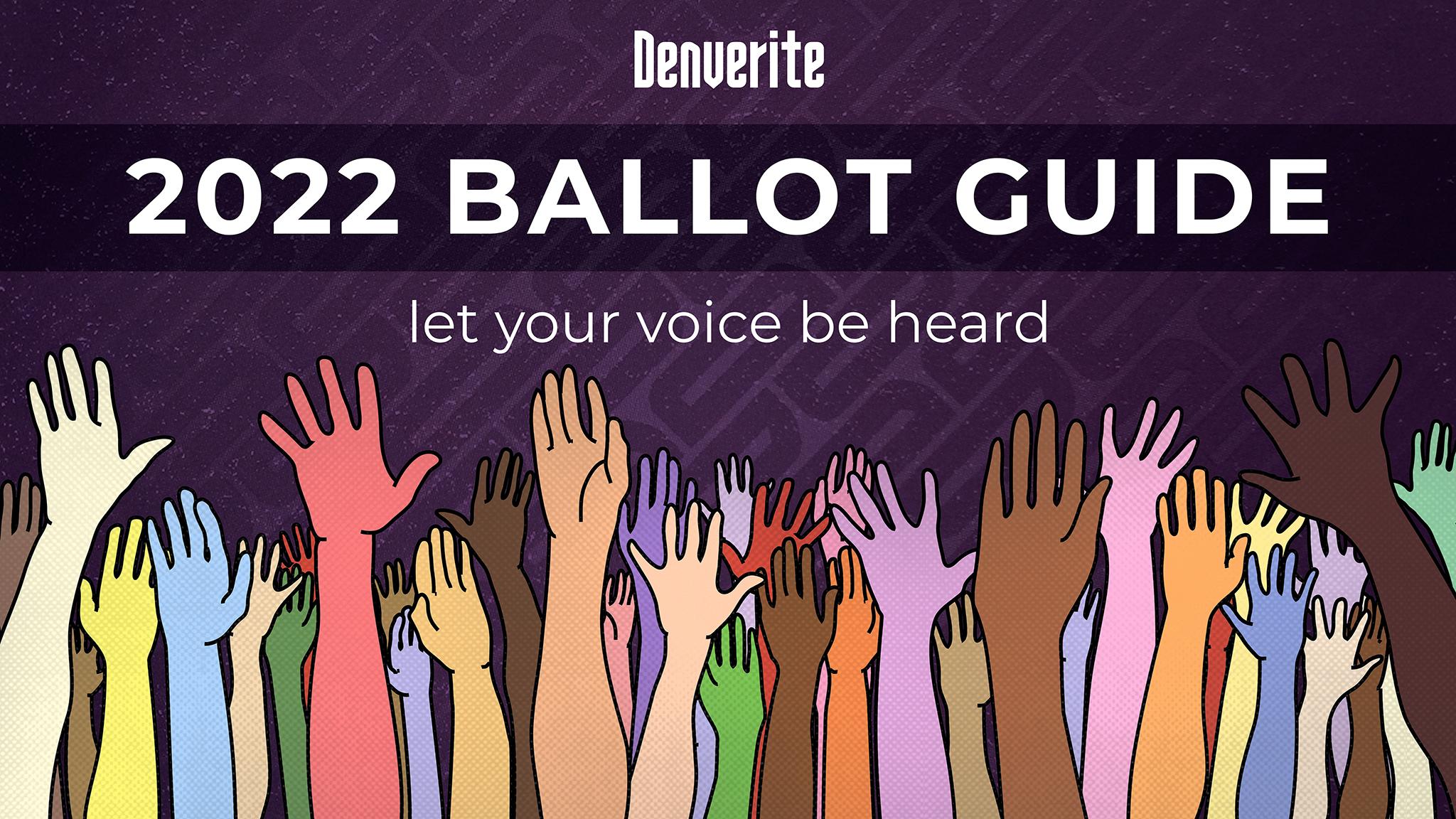It is election time again, Denver! Across the state, Coloradans will make their voices heard by voting for governor, a U.S. Senate seat and all eight of the state's congressional seats on Nov. 8.
They'll also decide on a number of amendments to the state constitution and several proposals as well as who will represent them on the state boards of education, Regional Transportation District and the CU Regents.
Denverites will vote on seven proposals ranging from investing in sidewalks to publicly provided defense for evictions.
These will have real impacts on our neighbors -- and you should have all the information you need to decide how to vote.
Here's pretty much everything you need to know about voting in Denver this year.
How to vote
If you're registered to vote, your mail-in ballot should be on its way in the mail as of Oct. 17.
You can register online to vote here. The deadline is Oct. 31.
And if you want to vote in person, you can find a list of places to vote in Denver here.
Denver provides a ballot guide for the referred questions and proposed ordinances you'll see on your ballot. You can find that here.
(Important note: the paper version of the Spanish-language ballot guide contained an error that you should be aware of.)
And the state-provided Blue Book provides analysis of the proposed state measures you'll see on your ballot. You can find it here.
Remember that if you're worried about your ballot's security, you can track it here.
What you asked us to focus on
We talked to more than 100 Denverites earlier this year - people in your neighborhoods and on your blocks. They told us what was on their minds as they were preparing to vote. From the rising costs of living in Denver to how we move around the city, you and your neighbors had a lot to say -- and we listened.
In order, these are Denverites' top concerns -- and we've written guides to where this issues show up on your ballots this year:
Denver ballot measures
? Initiated Ordinance 305: The one that provides eviction defense by charging landlords a fee
Should landlords be charged a $75 fee per unit to pay for the creation and operation of an eviction defense program that would be available to all Denverites -- not just those making 80% of the area median income or less.
♻ Initiated Ordinance 306: The one that would require recycling and composting
Should Denver adopt an ambitious composting and recycling program for multifamily residential premises like apartment buildings and condos; office buildings and other work places; and any other food waste producer including food trucks and special events hosts. Educational materials in English and Spanish would need to be provided detailing how the program would work. Food truck operators would be barred from improperly disposing of fats, oils and grease. Construction and demolition projects would also have to separate and recycle easily recyclable materials. The Department of Transportation would be allowed to establish rules and fines.
??♀️ Initiated Ordinance 307: The one that would build more sidewalks through fees on property owners
Should Denver create a sidewalk master plan and a program that would build and fix sidewalks across the city. The program would be funded by a fee on property owners.
And this is how long the city's analysis says it would take to build those sidewalks.
? Referred Question 2I: The one about a tax for library funding
Should Denver increase taxes to fund the Denver Public Library's current operations and meet the demand for additional services. Those could include higher wages for underpaid staff; more technology for patrons who lack internet access; more programs for kids, older adults, communities of color and vulnerable groups like refugees and immigrants; expanding job hunt resources; bring libraries back to normal hours, including evenings and weekends; expanding the collection of books and other media.
? Referred Question 2J: The one with the tax that funds climate friendly transportation and projects
Should Denver keep and spend the money raised from its .25% Climate Action sales tax and continue to impose the tax for programming that addresses climate change. The six areas the money funds are: job creation through local workforce training, investments in renewable energy technology and programs for climate justice, climate adaptation, transportation and building efficiency.
? Referred Question 2K: The one that would fund homelessness programs
Should Denver keep and spend money from the .25% Homelessness resolution sales-and-use tax and continue to collect the tax? The tax has funded a variety of programs that address homelessness in the city.
? Referred Question 2L: Should Denver change how initiatives can be put on the ballot by requiring them to include only one subject, updating deadlines for candidate nominations, having the Clerk and Recorder decide what a title of a ballot measure is called; and taking out extra details in the charter about how ballot questions are worded.
RTD Districts B, C, J, K, and L
District B - JoyAnn Keener Ruscha (unopposed)
District C - Michael Guzman (unopposed)
District J - Vince Buzek (unopposed)
District K - Incumbent Troy Whitmore vs. Harvest Thomas III
District L - Ian Harwick (unopposed)
And, just in case, are a few of other non-Denver area districts also up for election:
District I - Erik Davidson (unopposed)
District O - Incumbent Lynn Guissinger vs. Richard O'Keefe
District N - Incumbent Peggy Catlin vs. Pat Lawrence
Statewide ballot measures
Proposition FF: Healthy meals for all public school students
Proposition 121: State income tax reduction
Proposition 122: Access to psychedelics
Proposition 123: Dedicate tax revenue to affordable housing
Proposition 124: Increase the number of locations a liquor store chain can operate
Proposition 125: Allowing grocery and convenience stores to sell wine
Proposition 126: Allowing third parties, like Door Dash, to deliver alcohol
Amendment D: New 23rd judicial district for Elbert, Douglas and Lincoln counties
Amendment E: Extend homestead exemption to Gold Star spouses, explained
Amendment F: Changes to charitable gaming operations, explained
And here is everything you need to know about the statewide races:
Governor: Incumbent Jared Polis vs. Republican Challenger Heidi Ganahl
Attorney General: Incumbent Phil Weiser vs. Republican John Kellner
Secretary of State: Incumbent Jena Griswold vs. Republican Pam Anderson
U.S. Senate: Incumbent Michael Bennet vs. Republican Joe O'Dea
How to vote for a judge, explained
Want to know more about how voting works?
Here you'll find everything you need to know about the election at the statewide level
















